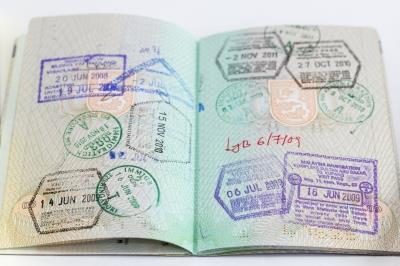Despite increasing restrictions on immigration and the likely need to backtrack in the future on some of the more extreme measures, the UK remains a popular destination for migrants

Since coming to power in 2010, the UK Conservative-led coalition government has struggled to strike a successful balance between its pledge to reduce net migration to the tens of thousands and its ambition to attract the “brightest and the best” to the UK’s shores. Indeed, the majority of related policy reforms in recent years have served to discourage migrants, rather than draw them in.
Notwithstanding these shifts to a more restrictive environment, a number of robust, business-friendly options remain for overseas talent and their families seeking to work and reside in the UK. Moreover, these routes, although leaner today than before, remain vital to the UK’s fiscal health and continued ability to compete in the global economy.
UK employment-based migration
The EU’s single market ensures the free movement of goods, services, capital and people among its member states. As such, European Economic Area (EEA) nationals, Swiss citizens (collectively referred to as EEA nationals) who exercise treaty rights, as well as their qualifying non-EEA family members, may work, study and reside in EU member states. For UK employers, this means that hiring an EEA national or a qualifying family member is a relatively inexpensive and straightforward process.
Unlike EEA nationals, those non-EEA migrants not relying on derived EU family member rights must obtain immigration permission prior to entering the UK. The system that governs most of this permission is the Points-Based System (PBS). Introduced in 2008, the PBS is comprised of the five tiers that are divided into categories and sub-categories tailored to specific types of work, investment or study.
In order to qualify, migrants must pass a points-based evaluation consisting of route-specific criteria that typically require demonstrating minimum skills levels, rates of pay, English language competence and maintenance levels.
Owing to its EU obligations, the UK is severely limited in how it may regulate the free movement of member state nationals. As a result, the government’s reduction of net migration has focused primarily on curbing routes for non-EEA migrants under the PBS. In the past three years, this has included the closure of two popular unsponsored categories, Tier 1 (General) and Tier 1 (Post Study Work), and the introduction of two less accessible routes, Tier 1 (Exceptional Talent) and Tier 1 (Graduate Entrepreneur) – both of which are subject to annual limits. Despite these changes, a number of useful avenues still remain for non-EEA migrants and UK employers seeking to employ them. The most popular of these include:
- The Tier 1 (Investor): for individuals seeking to make a significant investment in the UK.
- The Tier 1 (Entrepreneur): for individuals being actively involved in the establishment or take over of one or more businesses in the UK.
- Tier 2 (General): for sponsored skilled migrants who are able to fill jobs that cannot be filled by a settled worker in the UK (including positions on the shortage occupation list).
- Tier 2 (Intra-Company Transfer): for sponsored established skilled employees of multinational companies who wish to transfer to a UK branch of the same organisation to fill jobs that cannot be filled by a settled worker.
Family migration – minimum financial threshold
In addition to reducing non-EEA work and study routes, the government has sought to limit options for family migration.
On 9 July 2012, controversial new minimum income requirements for British citizens and settled persons seeking to sponsor a non-EEA partner or child took force. Under the changes, sponsors wishing to rely on employment-related finances must demonstrate a minimum annual income of £18,600 (€23,560) to sponsor a non-EEA migrant partner, an additional £3,800 to sponsor the first child and £2,400 more for each child thereafter.
In most cases, only the sponsor’s employment income will be considered, as the non-EEA partner’s employment income can be taken into account only if they are already in the UK with permission to work. For couples applying from outside the UK where the British citizen or settled partner is not the primary earner, this can make meeting the thresholds difficult or impossible. Additionally, although individuals may rely on sources of income outside of salary (such as savings), these sources are very specific and limited. Adding to these challenges, the Immigration Rules prohibit reliance on third-party promises of financial support.
The fallout of these requirements has been a greater number of divided families, as many would-be sponsors cannot meet the appropriate income levels. In fact, a cross-party parliamentary report noted that an estimated 47% of the UK’s working population in 2012 would be unable to fulfil the requirements.
MM, Javed and Mijid v Secretary of State for the Home Department
The changes to the minimum salary thresholds were challenged in MM, Javed and Majid v Secretary of State for the Home Department [2013] EWHC 1900 (Admin), a decision that was handed down almost a year to the day after the controversial requirements took force.
There, although declining to quash the requirement, the High Court held that the cumulative effects of the associated conditions were “so excessive in impact as to be beyond a reasonable means of giving effect to the legitimate aim.” Unfortunately for many families, the government successfully appealed this ruling and the original salary threshold was upheld. In what many view as a flawed decision, the appellate court ruled that it was sufficient for the Secretary of State to have a “rational belief” that the policy would affect the intended goal.
Although an appeal to the Supreme Court may be forthcoming, the government has already begun processing the almost 4,000 applications that were on hold pending the appellate court’s ruling, a move that will almost certainly result in a spate of refusals.
Surinder Singh route and O v The Netherlands
One peculiar consequence of these minimum salary requirements has been that the rules for sponsoring a partner or child in the UK are now stricter for British citizens and settled persons than they are for EEA nationals (who, owing to the right of free movement among member states, are not subject to the income threshold).
This has increasingly led some affected parties to avail themselves of an alternative method to enter the UK under EU law known as the ‘Surinder Singh route’ (stemming from precedent set in the case R v Immigration Appeal Tribunal and Surinder Singh, ex parte Secretary of State for the Home Department [1992] 3 CMLR 358 ECJ).
In Singh, the European Court of Justice (ECJ) concluded that Mr Singh had a right to remain in the UK under European law, as he had entered as the spouse of a British citizen who had exercised her right of free movement at the time. Therefore, a British citizen who exercised their right to free movement by working in an EU member state could re-enter the UK under EU law with their non-EEA spouse, the latter of whom would enter as the spouse of an EEA citizen and would therefore not be subject to the minimum financial thresholds for applications under UK law. At present, the UK government’s relatively recent interpretation of the effect of Singh, which is codified in Regulation 9 of the Immigration (European Economic Are) Regulations (amended), requires, among other conditions, that the British citizen has transferred the centre of their life to another EEA member state.
On 12 March 2014, however, the Grand Chamber of the Court of the European Union handed down a related decision clarifying the rules on the right of residence requirements.
In O v Netherlands C-456/12, the court concluded that a genuine residence of a EU citizen in a member state may create a derived right of residence for their third-country national spouse or partner, provided that the EU citizen was resident for at least three months in the member state and a family life was created or strengthened during that time. As this removes the requirement that the centre of life be established in a member state, the government will necessarily need to revisit the regulations and its now invalid position on Singh.
A shift to the right
In May 2014, EU parliament elections were held across Europe. In the UK, which conducted simultaneous local elections, the right wing, anti-immigration United Kingdom Independence Party (UKIP), whose platform includes a clear mandate to exit the EU, gained 161 local council seats and won more than 27% of the EU parliament election vote.
UKIP’s increased popularity in the past year, in part fuelled by inflammatory rhetoric and inaccurate statements by some in the media and politics, has caused the UK’s main political parties to visibly, if uncomfortably, shift to the right on immigration.
For his part, prime minister David Cameron pledged to renegotiate the terms of the UK’s membership in the EU and, if re-elected, hold a referendum on whether to remain. Although in favour of the single market, free trade and free movement to take up work among “a family of nations”, Mr Cameron has been explicit about his opposition to the idea of “an ever closer union”.
Labour, on the other hand, although intent on reforming the EU to be more advantageous to the UK, has stressed its desire to remain in the EU. Nevertheless, it has also proposed enacting legislation to ensure that no power can be transferred from the UK to the EU without an “in/out referendum”.
With euroscepticism on the rise in the UK and across the Continent, a potential vote on the UK’s continued membership in the EU following the upcoming general election will be critical. Should those results shift policies further to the right, the UK’s ability to meet the demands of a fast-paced global economy through accessible, flexible and responsive immigration policy will be severely affected.
Important destination
Despite many of the restrictive changes to the UK’s immigration policy in recent years, a number of efficient and effective options remain for overseas talent and the UK employers seeking to hire them. Although the UK would benefit tremendously from a more open immigration system, and although it will likely be necessary in the future to backtrack from some of the government’s more extreme measures, it is clear that Great Britain is still an important and popular destination for migrants from around the world, and, in particular, that it remains open for business.
Natasha Chell is a partner at Laura Devine Solicitors
This article was based on UK immigration law as of November 2014, which is subject to change




















No comments yet